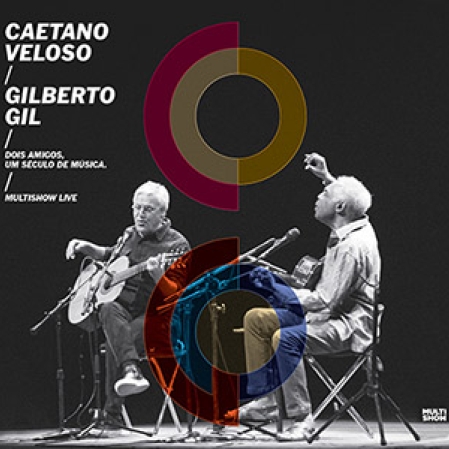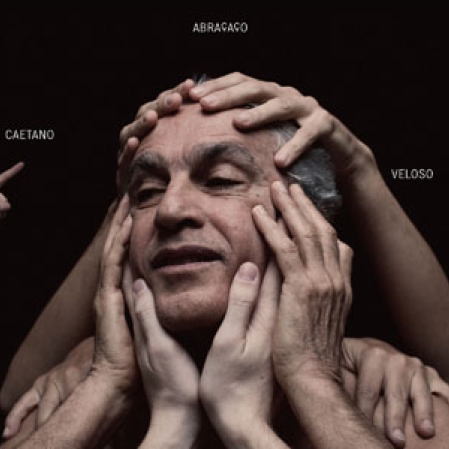Veloso performs before a homeland audience on this 2002 live double-disc. Says W magazine, "A rapturous crowd, often singing along word for word, neatly balances the gentle sophistication of the Brazilian pop legend, bringing a powerful immediacy to classics as well as new tunes."
Caetano Veloso’s 2002 two-cd set, Live in Bahia, came at a moment of rare serendipity for Veloso in the US—a period that also brought the first English translation of his long-awaited memoir, Tropical Truth: A Story of Music and Revolution in Brazil, published by Alfred A. Knopf, as well as a major national US tour.
Released in Brazil as Noites do Norte ao Vivo, Live in Bahia was recorded in July and August of 2001 over the course of two nights in Salvador, Bahia, and one night in São Paulo. Its primary focus is songs from Noites do Norte, his 2001 Nonesuch release exploring themes of race, slavery, and Brazil’s quest for a national identity. Live in Bahia also features new arrangements of such hits as "Cajuína" and "Tropicália" and the bossa nova classic "Samba de Verão," as well as songs from the past that are closely linked thematically to the principal material on the disc, such as "Two Naira Fifty Kobo" and "Sugar Cane Fields Forever."
Tropical Truth: A Story of Music and Revolution in Brazil, published by Alfred A. Knopf in October 2002, tells the story of how Caetano and a group of friends from the state of Bahia created tropicalismo, a movement that shook Brazilian culture—and civic order—to its foundations and pushed Brazil, a nation then on the margins of world politics and economics, into the artistic avant-garde.
PRODUCTION CREDITS
A Universal Music Production
Produced by Jaques Morelenbaum and Caetano Veloso
Aristic Director: Max Pierre
Artistic Management: Ricardo Moreira
Production Coordinator: Beth Araújo
Production Supervisor: Natasha Productions
Recorded live July 15, 2001 at DirecTV Hall, São Paulo
Additional recording August 6-7, 2001, at Concha Acústica, Teatro Castro Alves, Salvador
Recorded by Flávio Senna in Mobile Unit ARP
Technical Supervision: Walter Fernandes (Universal) and Zorro (ARP)
Assistants: Claudemir Rufo, Guilherme Medeiros, Sandro Rangel and Samuel Senna
Mixed at MOSH-SP Studios by Flavio Senna
Assistants: Gustavo Galisi, Paulo Penov and Yuri Kalil
Digital Editing: Enrico Romano
Mastered at Magic Master by Ricardo Garcia
79651
All formats of this album are available from Nonesuch in the United States only.
MUSICIANS
Jaques Morelenbaum, electric cello, vocals; and bass (disc 1, track 1), celluíca (disc 2, track 9)
Davi Moraes, electric guitars, mandolin, vocals; and guitar solo (disc 1, track 4; disc 2, tracks 1, 13), mandolin (disc 2, track 7)Pedro Sá, bass, electric guitar, vocals; and solo guitar (disc 1, track 14)
Cesinha, drums, vocals; and vocal (disc 1, track 1), bacurinha drum (disc 2, track 6)
Marcio Victor, percussion; and timbau solo (disc 1, track 5; disc 2, track 3), timbales solo (disc 1, track 15), drums (disc 2, track 6)
André Junior, Eduardo Josino, percussion
With the participation of Flávio Rego: “…só um tapinha…” on “Tapinha”
Special participation by Lulu Santos, courtesy of BMG Music Brasil (disc 1, tracks 11, 12)



















